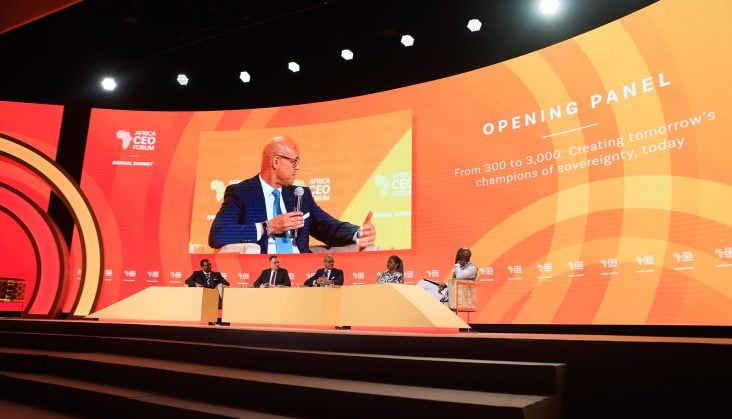Costs and delays are hampering African corporations fighting to compete with low-cost rivals, they say.”Each country has its own laws — it’s very complex,” Jeremy Awori, head of Ecobank, a bank that operates in 30 countries, speaking at The Africa CEO Forum in Abidjan on 5-6 June.The African Continental Free Trade Area (AfCFTA) was signed in 2019 by 54 out of the African Union (AU)’s 55 states, who together accounted for GDP last year of $3 trillion.It formally began operations on January 1, 2021 with the goal of achieving 90 percent cuts in tariffs within five to 10 years.
The International Monetary Fund (IMF) says this would unlock a real increase of 10 percent in per-capita GDP and a 50-percent rise in intra-African commerce.
To give one example of the potential gains, an AU study in 2014 found that sending a vehicle from Japan to Ivory Coast was three times cheaper than sending the same vehicle from Ivory Coast to Ethiopia.
But AfCFTA faces an uphill task.
Its secretary-general, South African trade expert Wamkele Mene, told The Africa CEO Forum that “fragmentation” in the continent’s market had worsened in the past decades.
“Every African activity has been negatively impacted by this fragmentation,” he said.
He gave the example of a company that had subsidiaries in Rwanda and neighbouring eastern Democratic Republic of Congo.
The subsidiaries are separated by just 20 kilometres (12 miles) but have to use a bank in New York for transferring money.
– Costly barriers –
Customs duties, which for many countries account for a huge chunk of government income, can sometimes exceed 50 percent.
Non-tariff barriers such as lengthy waits at borders or filling out forms are other major, but hidden, costs for corporations.
The problems are having an impact on African companies competing with developing-country counterparts facing lower or even zero hurdles.
Around 350 African companies today have turnover of more than a billion dollars, a fall of six percent since 2015, compared to 210 in Latin America and 170 in India, tallies that have risen by almost a third over the same period.
“By 2050, 40 percent of the (world’s) population will be African. We have to help our future champions find their place in global value chains,” said Ivorian Prime Minister Patrick Achi.
“Infra-African trade has to develop — it only accounts for 20 percent of trade volume today. The single market is a very important tool,” said Olivier de Noray, director for ports and terminals in freight and transportation company Africa Global Logistics.
The Covid pandemic highlighted Africa’s dependence on Western-made vaccines and Asian-made protective gear.
It was followed by the Ukraine war, which demonstrated Africa’s need to import Russian and Ukrainian grain.
“If we don’t learn from polycrises like this, shame on us,” said Awori.
“We could be self-sufficient in food, in fertilisers, and not to worry about where we are getting our wheat from.”
Understand Africa’s tomorrow… today
We believe that Africa is poorly represented, and badly under-estimated. Beyond the vast opportunity manifest in African markets, we highlight people who make a difference; leaders turning the tide, youth driving change, and an indefatigable business community. That is what we believe will change the continent, and that is what we report on. With hard-hitting investigations, innovative analysis and deep dives into countries and sectors, The Africa Report delivers the insight you need.




